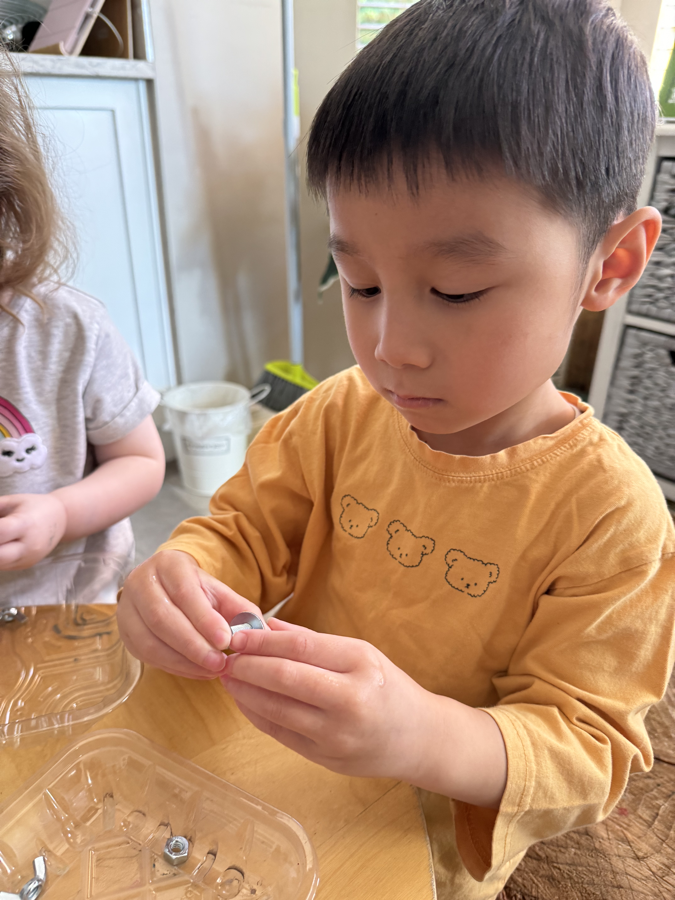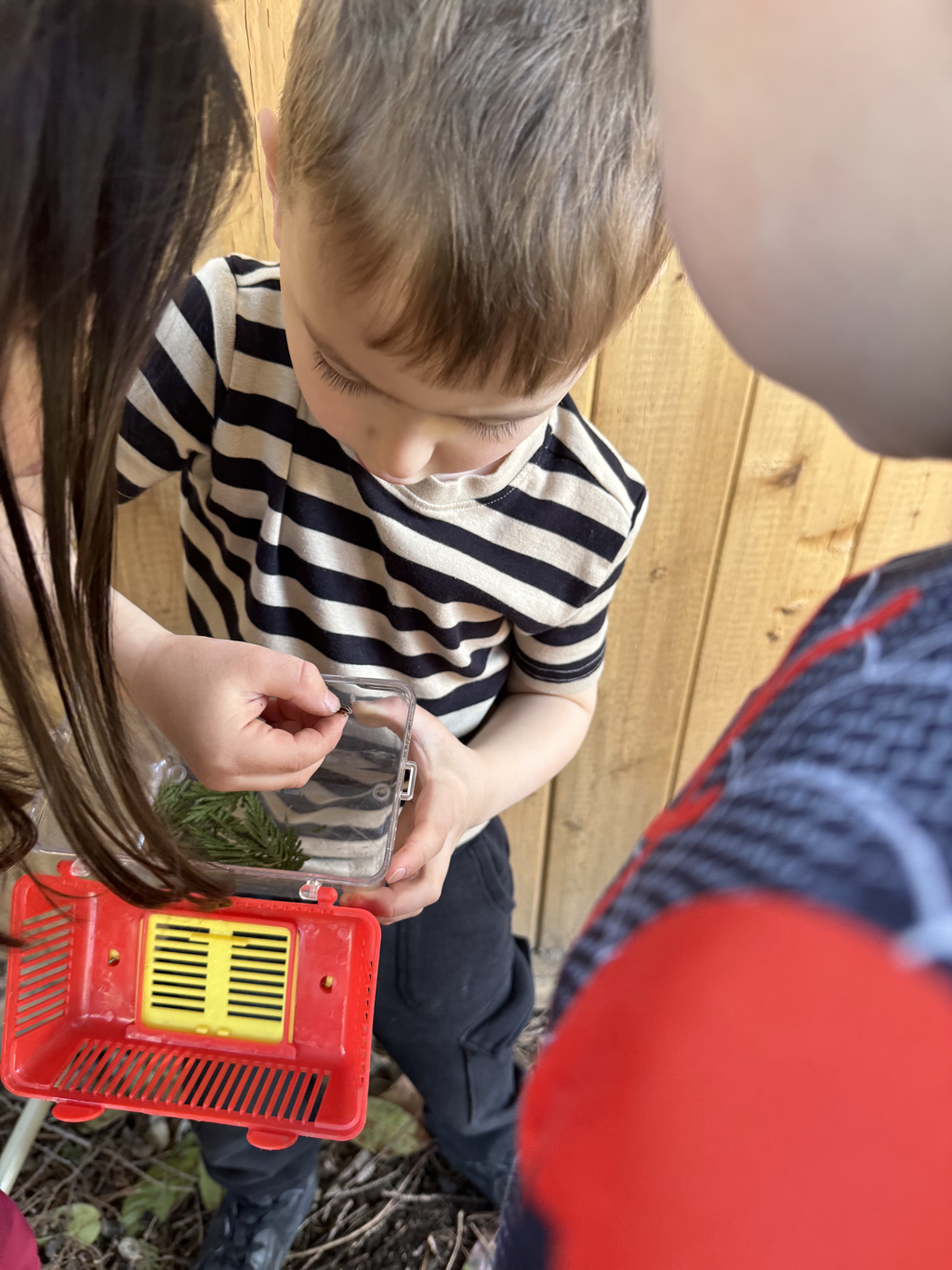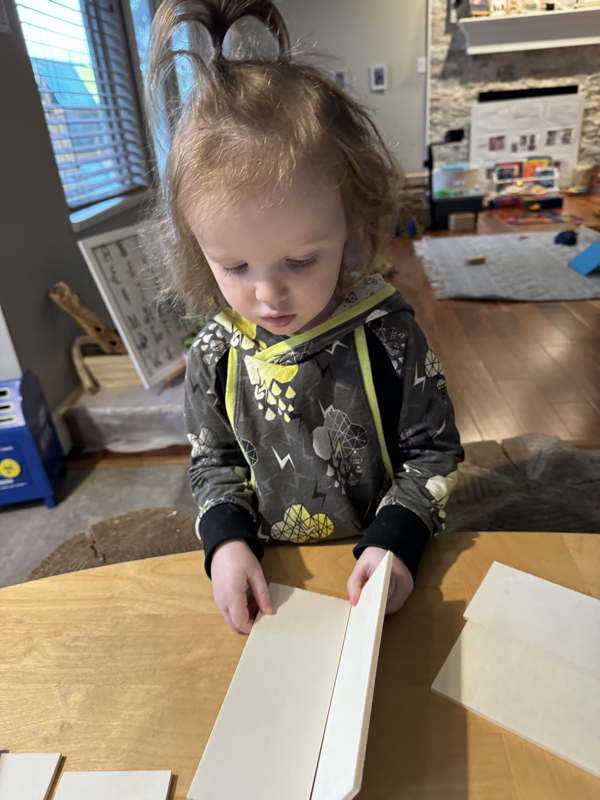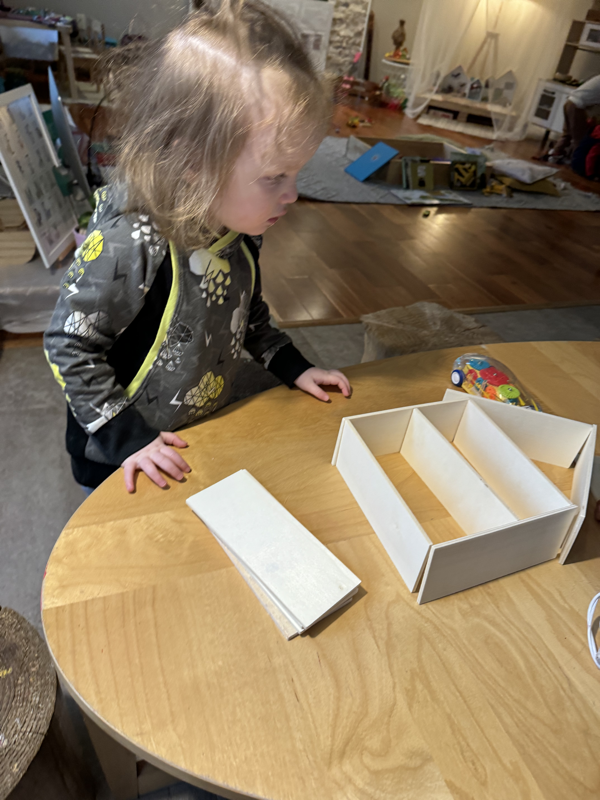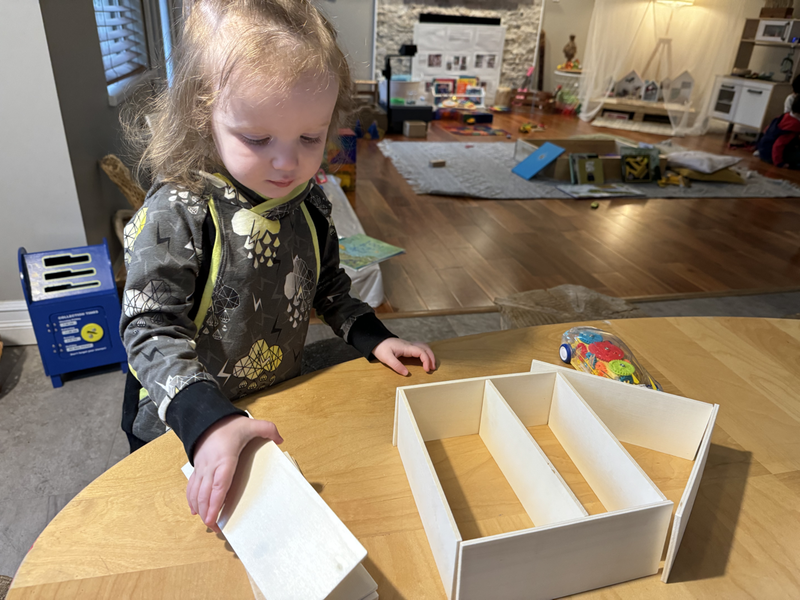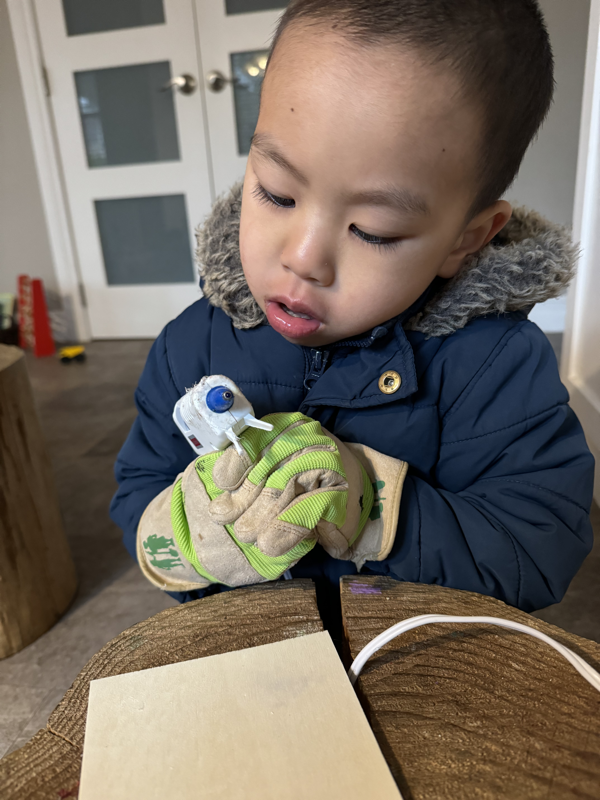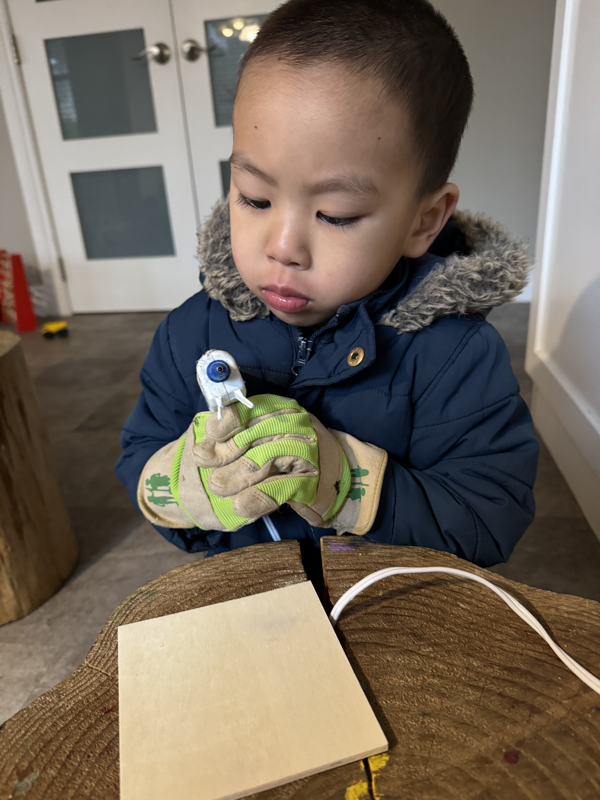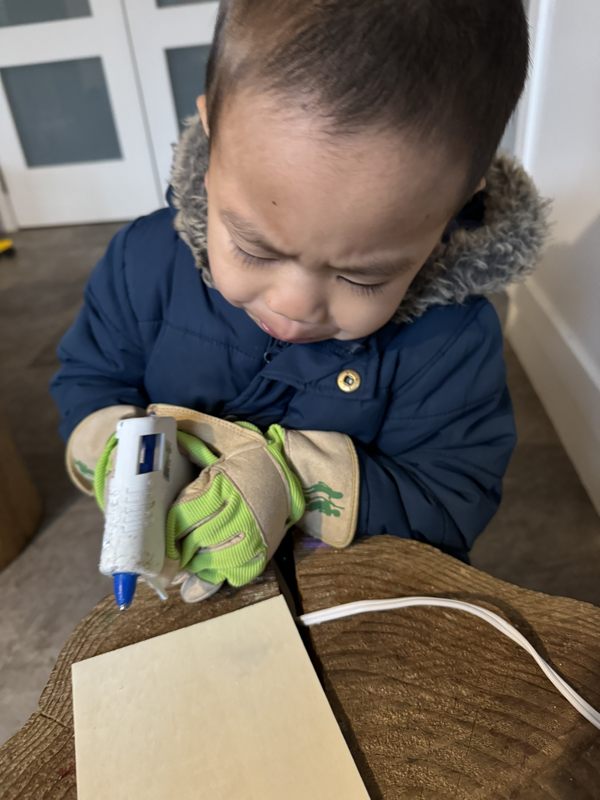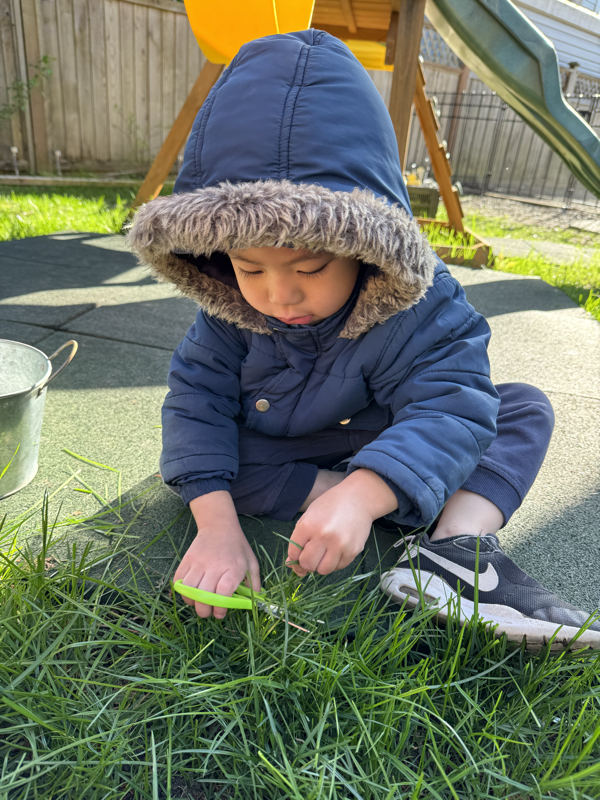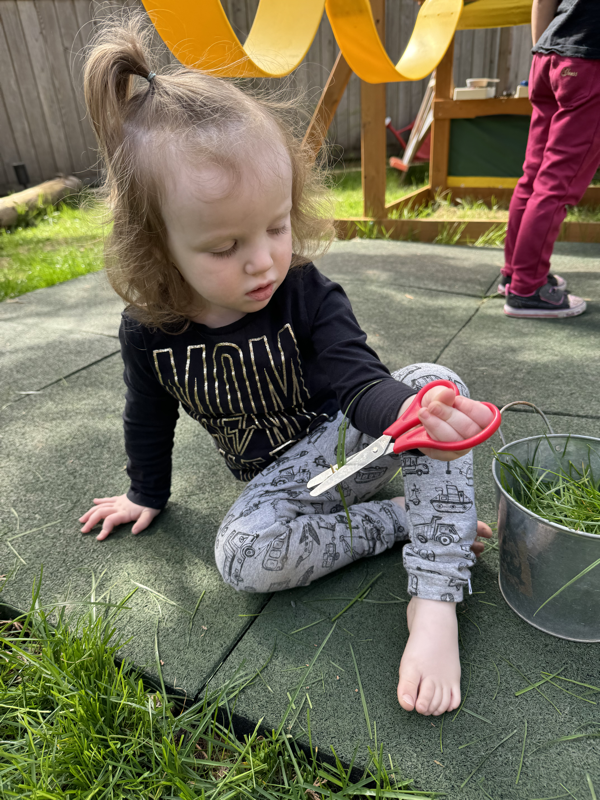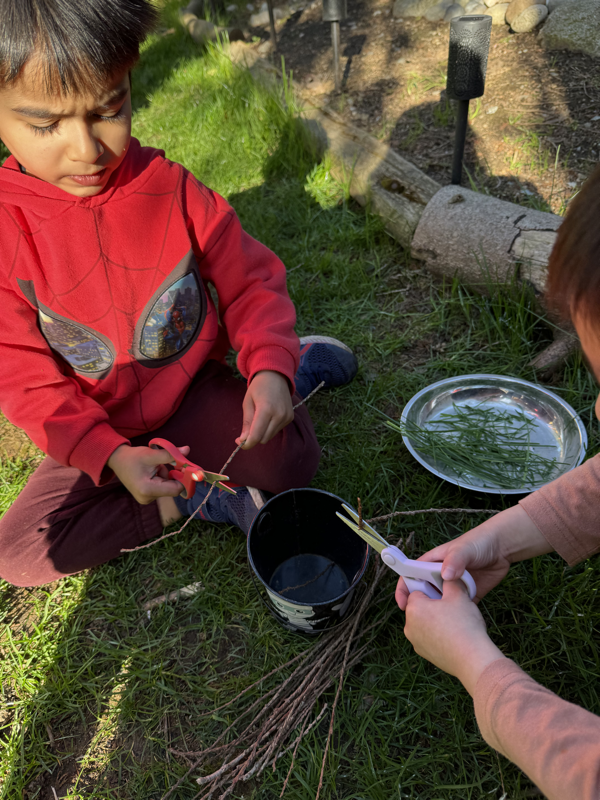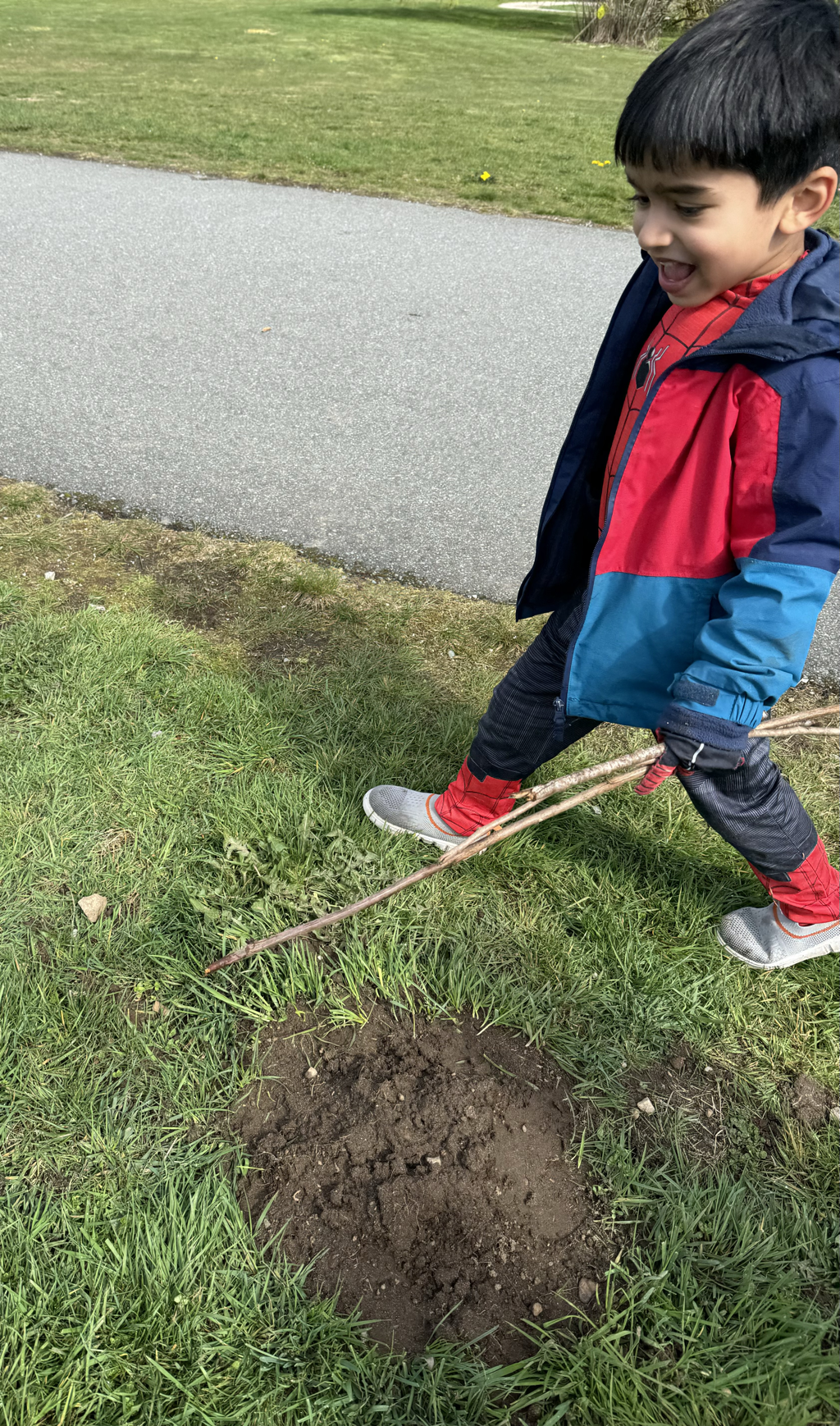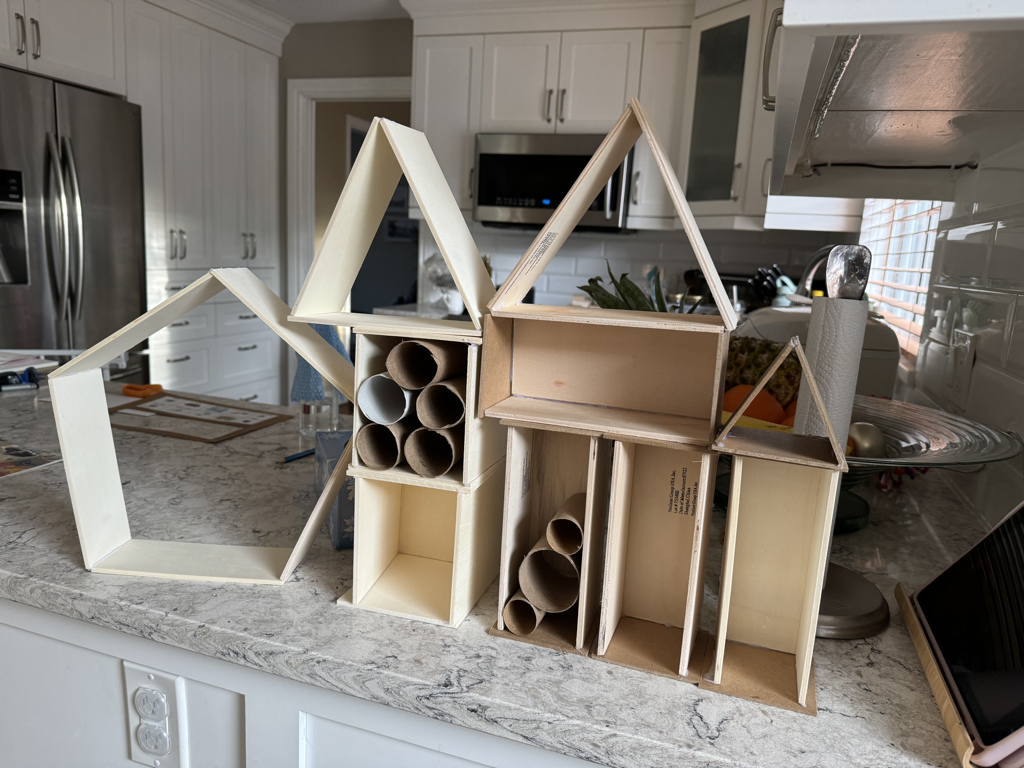|
We love learning about bugs for it offers endless concepts. These include STEM (the way insect bodies are engineered), habitat (where they live and what they eat), lifecycles, counting (how many legs does this one have?), biology and other parts of nature. Learning about bugs and their habitat encourages us to appreciate nature. Educating ourselves about the importance of respecting nature impact the relationship we have with bugs, for example. a spider is no longer be seen as 'scary'. This appreciation empowers us to think about how we should be more respectful when we encounter a spider or worm. To nurture our respect and understanding of the natural world further, we find wooden planks we can use for the floor and walls of the bug hotel. We arrange and re-arrange the wooden planks to create three-dimensional structures like triangular prism, rectangular prism, etc. Once we are satisfied with the layout, it's time to start connecting them using a hot glue gun. In between our various learning experiences to develop our respect toward nature, including bugs, we encompass movements related to bugs through yoga practices. The warrior 3 pose simulates a dragonfly flying around the garden, child's pose enables us to understand a ladybug resting on a leaf, etc. Yoga is also another wonderful learning to reinforce our thinking about social and environmental issues. As we practice yoga, we learn about the importance of taking care of ourselves and our surroundings. Yoga encourages a sense of connectedness and belonging. Through movement, we learn to act with respect, empathy, and compassion toward ourselves, others, and environment. Another addition to learning yoga relates to the ways we learn new sport like skateboarding. Similar techniques such as balance, coordination, motor skills, and spatial awareness are being practiced. Skateboarding provides us with a full-body workout as we use a variety of movements to propel the board. We exercise our arms, legs, torso, and feet as we twist with each turn. This exercise is more than a sport. Like other physical experiences, skating improves overall brain function by increasing the blood flow to our brain. As a result, we become more creative and decisive. Anticipating involves our abilities to develop considered expectations about how we might mathematically interpret a problem, the array of strategies - both correct and incorrect - that we might use to tackle it, and how those strategies and interpretations might relate to the mathematical concepts, representations. procedures, and practices (Smith & Stein, 2011). In this anticipation phase, we use our abilities to anticipate the consequences of actions, understand our own intentions and the intentions of others, and widen our own and others perspectives. How many cylindrical tubes should we place to fit together inside our bug hotel structures? is a question we keep in mind to ensure our anticipation works. In this way, we are learning to consider and predict the different possible outcomes of our actions. With a range of natural collections - twigs, grass, leaves, moss, pinecones, seed pods - we take them to our bug hotel and begin to fill the rooms. The idea is to create spaces that bugs would love to live in, or under. When we learn to fill up containers with objects, it is a learning experience to explore, develop, and learn important concepts. The more we handle and manipulate objects, the more developed our fine motor skills become. Filling up a box requires control over fingers, hands, and wrists. After having engaged in deep thinking during the anticipation phase, we move to the action phase. Action is a bridge between what we already know and what we want to bring into being. Through anticipation, we define a goal of and purpose for acting. When asked, Why do ants like to build hills? Nora, being empathetic, illustrates her thought eloquently, The ants like to have hills as their playground to play slides.
Kindest,
Children & Friends.
0 Comments
Leave a Reply. |
No part of this publication may be reproduced, distributed, or transmitted in any form or by any means, including photocopying, recording or any other electronic or mechanical methods, without the prior written permission of the publisher.
Archives
July 2024
|
